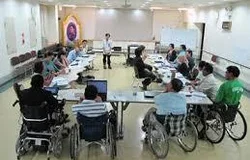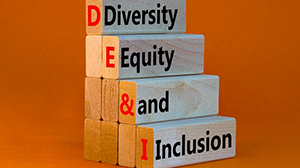Daniel Davidson, MD, MBA, DBA, PHD
Introduction:
Opportunities aren’t available to everyone in every society. Barriers related to geography, social status, and economy frequently prevent people from realizing their full potential. Nevertheless, by providing chances for people in need, charitable foundations are essential in reversing these imbalances. These foundations work as change agents, enabling people and communities to prosper in a variety of sectors, including healthcare, education, and employment. We’ll examine how philanthropic foundations promote possibilities and the revolutionary effects they have on society in this article.
Education for All:
The idea of the “Education for All” campaign is to guarantee that everyone has access to high-quality education, regardless of their socioeconomic background or other external factors. It is based on the conviction that education is a vital human right and an effective means of promoting social mobility, economic growth, and individual empowerment.
The global awareness of the differences and inequities in educational opportunities gave rise to the “Education for All” campaign. Many children encounter obstacles that keep them from accessing school, including poverty, discrimination, violence, and a lack of infrastructure, especially those who come from marginalized areas.
The following are important “Education for All” tenets:
Providing all children with the chance to enroll in and finish primary and secondary school, irrespective of their gender, ethnicity, socioeconomic background, or handicap, is known as universal access.
High-quality education is defined as imparting knowledge, skills, and competences that are necessary for students to succeed in the real world. It also emphasizes enhancing learning outcomes.
Equity and Inclusion:
Reducing inequalities and obstacles to education by giving underprivileged and vulnerable groups’ needs first priority, such as those of girls, children with disabilities, refugees, and residents of rural or isolated places.
Lifelong Learning:
Acknowledging that education is a continuous process that spans possibilities for lifelong learning and skill development as well as formal schooling.
Partnership and Cooperation:
Promoting partnerships and cooperative efforts between governments, communities, civil society organizations, and other relevant parties in order to pool resources, exchange best practices, and push for legislative changes that will encourage universal access to education.
Empowering Entrepreneurship:
“Empowering Entrepreneurship” describes the process of providing people with the tools, know-how, and encouragement they need to pursue their entrepreneurial dreams and be successful in the business world. Whether it’s a small firm, startup, or social enterprise, entrepreneurship entails the conception, growth, and administration of a new enterprise.
This is an explanation of the operation of empowering entrepreneurship:
Access to Resources:
Funding, workspace, technology, mentorship, and other necessary resources are frequently made available to budding entrepreneurs by charitable foundations. These tools assist business owners in launching their companies and overcoming initial obstacles.
Development of Skills:
Being an entrepreneur calls for a wide range of abilities, such as leadership, problem-solving, communication, and business acumen. Foundations provide workshops, training courses, and instructional materials to improve the skill sets of entrepreneurs and prepare them for success.
Support Systems:
Establishing a robust support system is essential for entrepreneurs as it offers direction, inspiration, and chances for cooperation. To link entrepreneurs with like-minded people and industry professionals, foundations organize peer-to-peer support groups, mentorship programs, and networking events.
Business Incubation:
A lot of foundations run business incubators or accelerators, which provide nascent companies all the tools and resources they need to grow quickly. These initiatives give entrepreneurs access to investors, mentors, and strategic alliances that support them as they grow and overcome obstacles.
Market Access:
Through venues for exhibiting goods and services, involvement in trade shows, and connections with prospective consumers or clients, charitable foundations assist business owners in reaching new markets. Entrepreneurs can increase their consumer base, gain momentum, and validate their ideas with the help of this exposure.
Support for Advocacy and Policy:
Certain foundations work to advance laws and rules that encourage small business development and entrepreneurship. Foundations foster an environment that is more favorable to the success of entrepreneurs by advocating for advantageous policies including tax breaks, easier access to money, and regulatory changes.
Social Entrepreneurship:
Foundations not only encourage traditional entrepreneurship but also social entrepreneurship, which aims to achieve both financial sustainability and significant social or environmental impact. Funds, networking opportunities, and mentorship are all offered by foundations to social entrepreneurs taking on urgent social and environmental problems.
Improving Healthcare Access:
The term “improving healthcare access” describes programs and tactics meant to guarantee that everyone, regardless of social status, geography, or income, has prompt and equal access to healthcare services when they need them. It includes initiatives to take down obstacles that keep individuals from getting the essential medical treatment they need, improving their general health and well-being in the process.
The following are some essential elements for enhancing healthcare access:
Geographic Accessibility:
It can be difficult to get to healthcare services in many places, especially in rural and isolated areas. Establishing medical facilities in underserved areas, such as clinics, hospitals, and mobile health units, is necessary to improve geographical access. Furthermore, transportation services could be offered to make it easier for people to go to healthcare facilities.
Financial Accessibility:
For low-income individuals and families in particular, cost can be a major obstacle to receiving healthcare. Financial help programs are available for individuals who cannot afford medical treatment, health insurance coverage is provided, and healthcare services are subsidized as ways to increase financial accessibility.
Cultural and Linguistic Accessibility:
Misunderstandings and inequalities in care can arise from communication difficulties caused by cultural and linguistic differences between patients and healthcare professionals. The provision of language interpretation services, culturally competent care, and health education materials suited to a variety of demographics are all part of the initiatives to increase cultural and linguistic accessibility.
Health Promotion and Preventive Care:
Encouraging health education and preventive care programs can help people stay well and lower their future need for more expensive medical procedures. This includes campaigns to encourage healthy lifestyle choices, common disease screenings, and vaccine programs.
Digital Health Solutions:
Access to healthcare can be greatly enhanced by technology, especially in rural or underdeveloped areas. People can use their computers or cellphones to obtain health information, interact with doctors remotely, and receive medical advice thanks to telemedicine and mobile health apps.
Community Outreach & Engagement:
Getting involved in healthcare decision-making processes and interacting with communities can foster a sense of trust and motivate people to seek out medical care. Community health workers, health education seminars, and outreach initiatives can all contribute to increasing public knowledge of healthcare options and empowering people to take charge of their own health.
Reducing Healthcare Disparities:
Achieving health equity requires addressing inequalities in healthcare outcomes and access among various demographic groups. This entails locating and resolving the underlying socioeconomic determinants of health that underlie disparities in healthcare outcomes and access, such as discrimination, poverty, and illiteracy.
Promoting Employment Opportunities:
Encouraging employment possibilities entails taking steps and making an attempt to make meaningful and long-lasting occupations more accessible to people in a community or society. This can include a range of tactics and programs intended to remove obstacles to work and create avenues for people to join or return to the workforce. The steps involved in publicizing job opportunities are broken down as follows:
Workforce Development Programs:
Individuals seeking employment can receive career counseling, skill development, and job training through these programs, which are frequently funded by charitable foundations. These programs provide participants with the skills and credentials necessary to succeed in the profession, sometimes focusing on certain industries or areas with high-demand positions.
Initiatives for Job Training:
Foundations back job training programs that provide certifications and training in real-world skills that are pertinent to the labor market today. These programs, which are meant to get people ready for entry-level jobs or career progression, could include apprenticeships, vocational training, or on-the-job training.
Opportunities for Vocational Education:
Programs that offer persons specialized training in trades and technical sectors are funded by charitable foundations. These courses give participants the skills they need to seek employment in fields including manufacturing, information technology, healthcare, and construction while providing an alternative to traditional higher education.
Support for Underserved Populations:
Low-income persons, members of underrepresented groups, immigrants, refugees, and people with disabilities who encounter structural obstacles to work are among the underserved populations that foundations give priority to. They provide funding for initiatives that remove these obstacles, including childcare support, language and literacy instruction, transportation support, and accommodations for people with impairments.
Small business ownership and entrepreneurship:
Foundations support small business ownership and entrepreneurship as routes to economic empowerment in addition to traditional employment options. They help prospective company owners, especially those from underrepresented populations, launch and expand their enterprises by offering them tools, training, and mentorship.
Workplace Services:
Employment agencies and job placement services that link job seekers with companies looking to fill openings are funded by charitable foundations. For the purpose of assisting people in navigating the job search process and landing a job, these services could include resume assistance, interview preparation, job matching, and continuous support.
Advocacy and Policy Reform:
In order to overcome systemic impediments to employment, such as discrimination, wage inequity, a lack of affordable childcare, and insufficient worker protections, foundations participate in advocacy work and support policy reform projects. Foundations strive toward a more inclusive and equitable labor market for all by supporting legislative and structural reforms.
Conclusion:
Volunteer organizations act as rays of hope, supporting equal access to opportunities for all. These foundations improve people’s lives and communities by opening doors to a better future via their steadfast dedication to employment, healthcare, education, and entrepreneurship. It is impossible to overestimate the crucial roles philanthropic foundations play in increasing access to opportunities as we negotiate ongoing global issues and strive toward a more equal society. Let’s acknowledge and assist them in their efforts to make the world a place where everyone has the opportunity to prosper.








